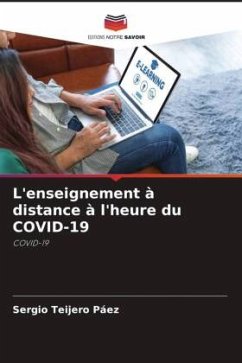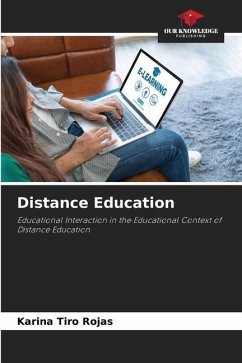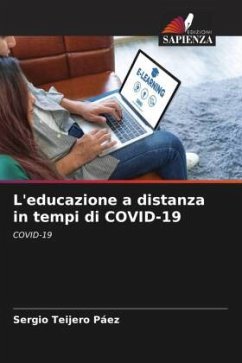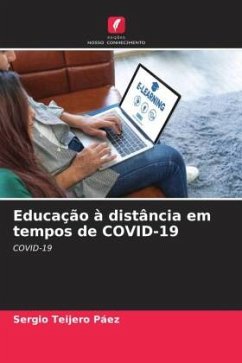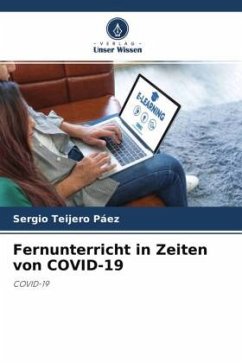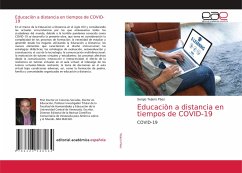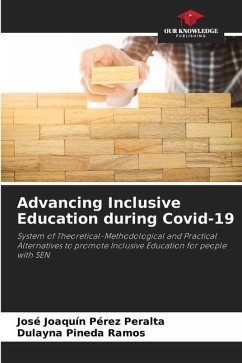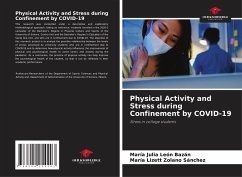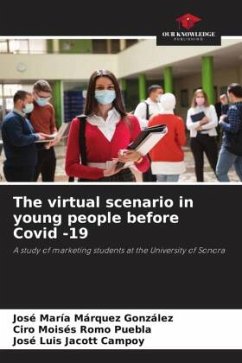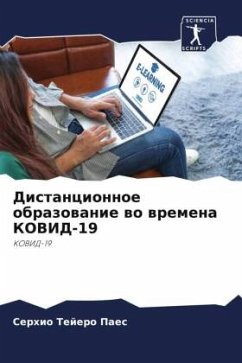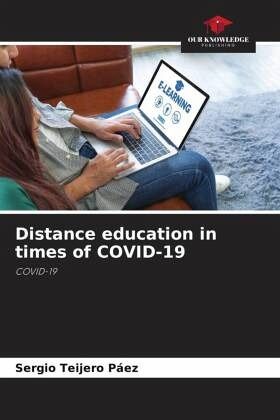
Distance education in times of COVID-19
COVID-19
Versandkostenfrei!
Versandfertig in 6-10 Tagen
47,99 €
inkl. MwSt.

PAYBACK Punkte
24 °P sammeln!
Within the framework of Distance Education in the 21st century and considering the current circumstances that all citizens of the world are going through, due to the terrible pandemic known as COVID-19, the present work is developed, which takes into consideration the complexity of the training processes; the need to study and learn from home using Distance Education; the new elements that characterize the instructional design; the didactic strategies; evaluation, self-evaluation and co-evaluation strategies; the use of technology, multidirectional communication; motivation of virtual tutors a...
Within the framework of Distance Education in the 21st century and considering the current circumstances that all citizens of the world are going through, due to the terrible pandemic known as COVID-19, the present work is developed, which takes into consideration the complexity of the training processes; the need to study and learn from home using Distance Education; the new elements that characterize the instructional design; the didactic strategies; evaluation, self-evaluation and co-evaluation strategies; the use of technology, multidirectional communication; motivation of virtual tutors and students; affective processes from communication, interaction and interactivity; the effect of resilience in virtual tutors in the virtual classroom; leadership of virtual tutors-resilient leaders; decision making in the virtual classroom under adverse conditions; as well as the training of parents, family and organized communities in distance education.



